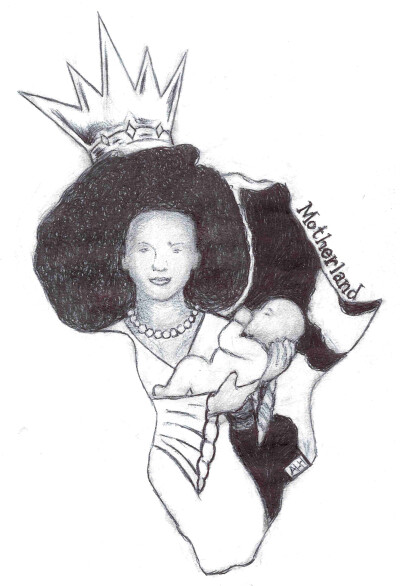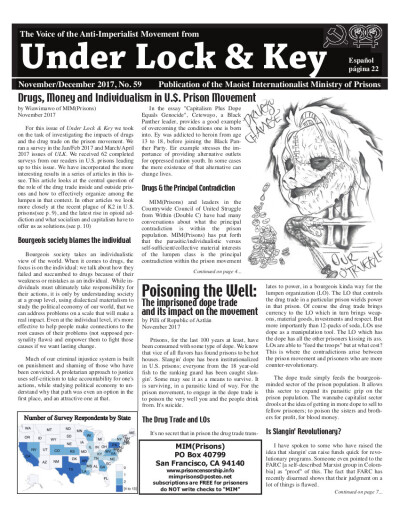
Imperialism in Zambia

18 February 2025 – There is a report from Zambia of the collapse of a tailings dam that held acidic waste from a copper mine.(1) The collapse released millions of liters of waste containing concentrated acid, dissolved solids and heavy metals into a stream connected to the Kafue River in Zambia. China is the dominant player in copper mining in Zambia. China uses the copper in smartphones and other technology. The devastating consequences of this environmental catastrophe include the widespread killing of aquatic life in the river, contamination of water used for industrial and agricultural operations as well as polluting the drinking water of some five million people in Zambia. Chinese-owned copper mines have been accused of ignoring safety, labor and other regulations in their imperialist pursuit of earth minerals such as copper in Zambia. China is using classic imperialist tactics such as the exporting of capital to secure minerals and other resources by promoting development programs that put countries such as Zambia in debt to them. Zambia is reportedly more than $4 billion in debt to China. Zambians have already defaulted on payments in 2020 to other nations as well. Clearly we have another case of Chinese state-run corporations operating without regards to humyn life or the environment.
In conclusion, as a voice in the anti-imperialist movement I encourage comrades to realize it is not just Amerikans or Europeans who build their wealth and higher standards of civilization through the manipulation of underdeveloped nations. We stand against all nations that are imperialist! Nations we should be also speaking about in ULK. Nations such as China, Russia and Iran. I mention Iran because the spread of Islam is also a form of imperialism. Religion has been the reason for uncounted billions of people who suffer mentally, physically and even face death. Something that should be more deeply explored in ULK articles.
Charlie of AIPS responds: Orko is right when ey says that China is an imperialist country. We have no disagreements there. Nor do we disagree with eir statement that we should “stand against all nations that are imperialist”. So why do we focus on the imperialism of the U.$. in our work? Because anti-imperialism is a question of political line, while our political work is mediated by the strategies and tactics we undertake. If you are not familiar with this terminology from the MIM(Prisons)-ran study groups, let me rephrase. Anti-imperialism is a fundamental stance that we require others to hold if we are to collaborate with them. We will not waver on this point. But as we move beyond the fundamentals, we must consider the particulars of our unique political situation. We operate within the strongest imperialist country that has ever existed in humyn hystory: the United $tates. Our work can have no other aim, then, than to grow and strengthen the existing Communist movement that resides within the $tates. We must also acknowledge that one of the hallmarks of “patriotic” attitudes in the U.$. is criticizing the imperialism of other countries while defending the imperialism of the $tates. You can observe this yourself in seeing how united Democrats and Republicans are in denouncing countries such as China, Russia and Iran. As supporters of the international Communist movement, we must distinguish ourselves and our politics from the bourgeoisie and their lackeys. How is this distinction to be made if we simply echo their points on foreign affairs (though, admittedly, with more theoretical backing)?
On the note of religion, we must mention that religion, while fundamentally idealist and antithetical to Marxism, has a dual character. This is to say, religion can be used both for reactionary ends as well as for revolutionary ends. Palestine is the perfect encapsulation of this. The U.$.-backed Zionist entity termed “I$rael” uses religious arguments to justify their brutal murder and oppression of Palestinians. On the other side, revolutionary groups such as Hamas are inextricably linked to religion through their Islamic beliefs. The key is to consider the particularities of the situation at hand: Which nations are involved? Which classes? Which side, if any, is revolutionary at this time? Which groups are tied to religious movements, and how are these movements connected to the previous questions? To write off religion as a whole would be an error given the reality that it can be wielded for revolutionary means.
This all being said, we heartily welcome the contributions in this article from comrade Orko. It is well-worth noting that the logic of capitalist-imperialist countries all over the world follow the same general trends as outlined by V. I. Lenin in eir groundbreaking work Imperialism, the Highest Stage of Capitalism. But so long as our practice is confined to the borders of the U.$., that is where our focus must lie.
MIM(Prisons) adds: As Charlie mentions, we use the term imperialism to refer to the highest stage of capitalism as described by Lenin. The forcible spread of Islam and Christianity hundreds of years ago predated imperialism. And to use the history of Islam to call Iran imperialist today makes no sense. During the invasion of Afghanistan by the United $tates, pseudo-feminists made the same claim about the Taliban being “imperialist”, therefore justifying the murder of Afghan civilians (including wimmin), via their islamaphobia. Currently Iran and China are primary targets of Amerikans threats. A war with either will likely mean a global inter-imperialist war. This is not in the interests of the international proletariat. Nor is it in the interests of oppressed nations on occupied Turtle Island who will also face increased attacks when Amerikan nationalism is stoked.
Notes: (1) “A river ‘died’ overnight in Zambia after an acidic waste spill at a Chinese-owned mine” Associated Press, 15 March 2025.








